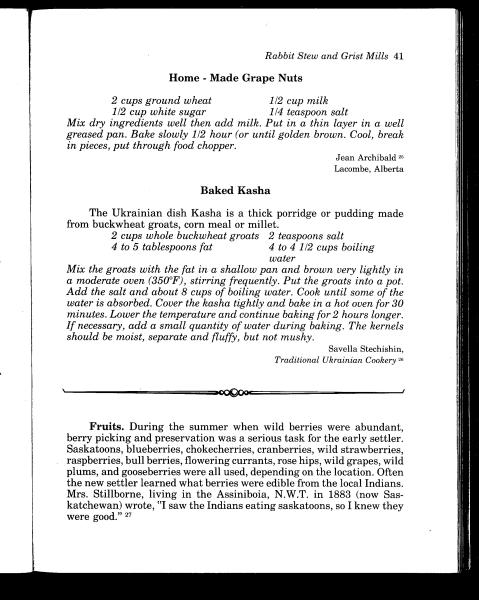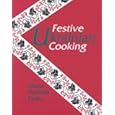If tomrrow’s DVD release of Julie & Julia is inspiring you to cook, don’t forget there was a Ukrainian Canadian version who paved the way for her prairie peers with her own brand of Ukrainian cooking, art, history and grammar books more than half a century ago:
Savella Stechishin (née Wawryniuk) worked to secure the integration of Ukrainian Canadian women into Canadian society while maintaining their Ukrainian heritage. Encyclopedia of Saskatchewan
Savella Stechishin was born in Tudorkovychi, Lviv Oblast, of Western Ukraine (Galicia), and her family emigrated to Canada in 1913, settling in Krydor, Saskatchewan. At age 17 she married Julian Stechyshyn, rector of the Petro Mohyla Institute in Saskatoon, and later bore three children, Anatole, Myron, and Zenia. She completed high school and teachers college, and obtained a Bachelor of Arts degree specializing in Home Economics from the University of Saskatchewan in 1930, the first Ukrainian woman to receive a degree there. Wikipedia
She was the first Ukrainian Canadian woman to graduate from the University of Saskatchewan (1930), and the first Ukrainian woman in canada to graduate with a specialization in home economics. Ukrainian Weekly
She led an amazing life, heading up many womens’ organizations and stressing the importance of health and nutrition. She has had so many accomplishments in her life I couldn’t find the time to summarize them all, so I encourage you to read the Ukrainian Weekly article about her life and death – it’s quite amazing.
Shechishin’s most prominent book is the English-language Traditional Ukrainian Cookery (1957), which saw its eighteenth reprinting in 1995 and has sold 80,000 copies. Her other books are in Ukrainian: Art Treasures of Ukrainian Embroidery (1950), and a 50th anniversary book for the Saskatoon branch of the Ukrainian Women’s Association (1975). She assisted her husband, Julian Stechishin, with a Ukrainian Grammar (1951), and completed his History of Ukrainian Settlement in Canada (1971) after his death—an English translation was published in 1992. Ukrainian Weekly
These books are unfortunately out of print, with no republishing date scheduled in the near future. If you are lucky enough to have a copy of these books, please treasure them and make sure to put them to good use. If you can’t find Traditional Ukrainian Cookery at your local used bookstore or library there are some recipes scattered across the internet – definitely a good resource to have for Christmas!
Here’s one of her recipes re-published in The pioneer cook : a historical view of Canadian Prairie food:

A biography about her life is also available: Blossoming of a Ukrainian Canadian Savella Stechishin

 The poems cover Bachinsky’s family history and Stephen Leacock’s casual racism, Canadian internment camps and forced starvation in the old country. The Bread Basket of Europe gives new, terrifying meaning to a cliché I often heard growing up. She makes poignant use of the word Holodomor (or “murder by hunger,” referring to the millions who staved to death under Stalin).
The poems cover Bachinsky’s family history and Stephen Leacock’s casual racism, Canadian internment camps and forced starvation in the old country. The Bread Basket of Europe gives new, terrifying meaning to a cliché I often heard growing up. She makes poignant use of the word Holodomor (or “murder by hunger,” referring to the millions who staved to death under Stalin).


 Ukrainian rite Catholic Church : an account of church activities in Calgary
Ukrainian rite Catholic Church : an account of church activities in Calgary Ukrainian vernacular architecture in Alberta
Ukrainian vernacular architecture in Alberta Vita : a Ukrainian community : it’s background and beginnings.
Vita : a Ukrainian community : it’s background and beginnings. Maple leaf and trident : the Ukrainian Canadians during the second World War
Maple leaf and trident : the Ukrainian Canadians during the second World War

 Pioneer profiles : Ukrainian settlers in Manitoba
Pioneer profiles : Ukrainian settlers in Manitoba Hardships & progress of Ukrainian pioneers : memoirs from Stuartburn colony and other points
Hardships & progress of Ukrainian pioneers : memoirs from Stuartburn colony and other points Spruce, swamp and stone : a history of the pioneer Ukranian settlements in the Gimli area
Spruce, swamp and stone : a history of the pioneer Ukranian settlements in the Gimli area Reflections and reminiscences : Ukrainians in Canada, 1892-1992
Reflections and reminiscences : Ukrainians in Canada, 1892-1992 Multiculturalism and Ukrainian Canadians : identity, homeland ties, and the community’s future
Multiculturalism and Ukrainian Canadians : identity, homeland ties, and the community’s future Between two worlds : the memoirs of Stanley Frolick
Between two worlds : the memoirs of Stanley Frolick Galicia and Bukovina : a research handbook about Western Ukraine, late 19th and 20th centuries
Galicia and Bukovina : a research handbook about Western Ukraine, late 19th and 20th centuries Earlier this week I noticed on
Earlier this week I noticed on